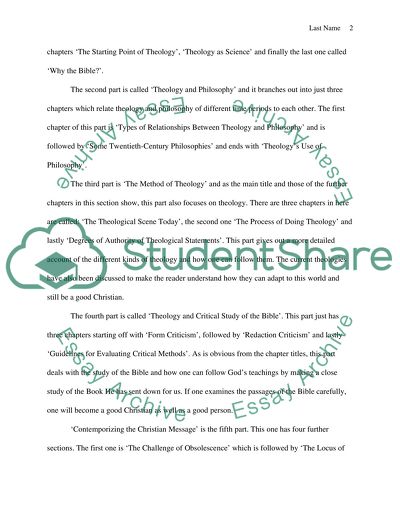Cite this document
(“Book review/ summary Report/Review Example | Topics and Well Written Essays - 3000 words”, n.d.)
Retrieved from https://studentshare.org/religion-and-theology/1396473-book-review-summary
Retrieved from https://studentshare.org/religion-and-theology/1396473-book-review-summary
(Book Review/ Summary Report/Review Example | Topics and Well Written Essays - 3000 Words)
https://studentshare.org/religion-and-theology/1396473-book-review-summary.
https://studentshare.org/religion-and-theology/1396473-book-review-summary.
“Book Review/ Summary Report/Review Example | Topics and Well Written Essays - 3000 Words”, n.d. https://studentshare.org/religion-and-theology/1396473-book-review-summary.


